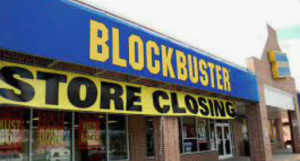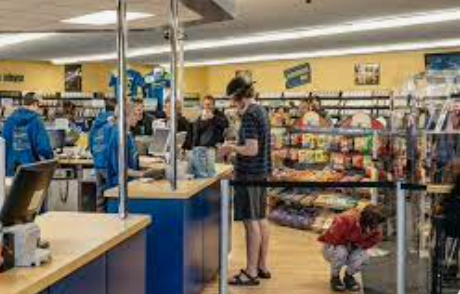For a small industry, cannabis has a ton of interesting players. But will rescheduling force everyone to become grown ups?
The marijuana industry has been around for thousands of years. In the US and Canada it was big until the 30s, then came Reefer Madness, the it was fairly low key until the 60s. It is a key part of the counterculture era and some players still around from the era see it as more of a cause, something against and the main and pure bliss. The bros who jumped in around 2017 see it more as a vehicle to being rich (or richer). Steve D’Angelo, the self declared Father of the Legal Cannabis industry sees it more as yoga, a positive which “big companies” will ruin. With rescheduling the industry will transform again, but is it moving to the Blockbuster Era?
RELATED: Science Says Medical Marijuana Improves Quality Of Life
When home video burst into the scene, it quickly gave birth to thousands of mom and pop stores who sold and rented videos. In every neighborhood one popped up and some areas had mini/local chains. This small stores helped fill and increase consumer demand. Blockbuster entered the market and soon took a commanding presence. Following McDonald’s Ray Kroc‘s expansion philosophy, they grew quickly. At one point they were opening a new store every 24 hours. Due to size, technology and resources, they also quickly shut down the majority of their small competitors.

With rescheduling, Safer Banking and potentially more, bigger players and the mainstream industry will be taking a harder look. The industry is full of mom and pop businesses who are struggling without the resources to grow and compete for customers. Dispensaries have it hard, and yet there are few chains. But a couple of major players coming in – a Total Wine, a Bev Mo, and all the sudden the average consumer, which makes up 90 percent of the market, is picking up a vape, a 6 pack, dinner, detergent and a $15 bottle of wine for dinner. In one stop.
“Looking out twenty years, we expect the current dispensary model to either not exist or evolve substantially. Cannabis will be sold directly to consumers (like wine clubs) and may be accessible in grocery stores, convenience stores, and online. The days of standing in line and waiting to show your ID to an armed guard before entering the waiting room are numbered.” shared Jesse Redmond, Managing Director Water Tower Research.
Another example are beer speciality stores. Even big cities like Chicago, Dallas and Seattle have less than a dozen retailers who specialize in just beer. There are over 100 distinct styles of beer, from light blond ales to creamy stouts. This doesn’t count all the brands. Yet, beer is sold primarily at grocery, convenience and gas retailers. Their entry into the market will be a boon for brands, but troubling for dispensaries.
“Looking out twenty years, we expect the current dispensary model to either not exist or evolve substantially. Cannabis will be sold directly to consumers (like wine clubs) and may be accessible in grocery stores, convenience stores, and online. The days of standing in line and waiting to show your ID to an armed guard before entering the waiting room are numbered.”
RELATED: California or New York, Which Has The Biggest Marijuana Mess
In fact, the downfall of Blockbuster were grocery stores. Seeing the success of the video store, food chains began offering videos for rent of purchase, you could pick up dinner, drinks and movie in one location. The majority of the public like how easy it was and Blockbuster joined the mom and pop stores they squashed and eventually closed.
The winner are the big brands who appeal to a large customer base, they will be carried and sold in huge numbers.


